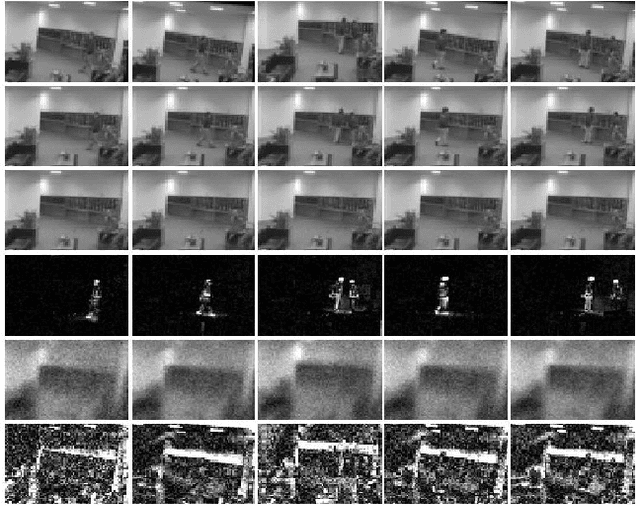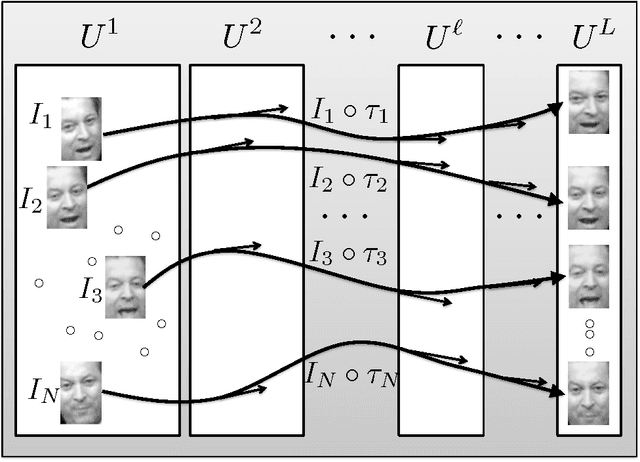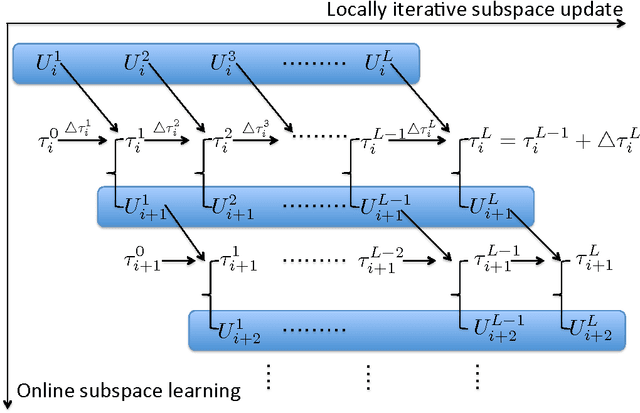Iterative Grassmannian Optimization for Robust Image Alignment
Paper and Code
Jun 20, 2013



Robust high-dimensional data processing has witnessed an exciting development in recent years, as theoretical results have shown that it is possible using convex programming to optimize data fit to a low-rank component plus a sparse outlier component. This problem is also known as Robust PCA, and it has found application in many areas of computer vision. In image and video processing and face recognition, the opportunity to process massive image databases is emerging as people upload photo and video data online in unprecedented volumes. However, data quality and consistency is not controlled in any way, and the massiveness of the data poses a serious computational challenge. In this paper we present t-GRASTA, or "Transformed GRASTA (Grassmannian Robust Adaptive Subspace Tracking Algorithm)". t-GRASTA iteratively performs incremental gradient descent constrained to the Grassmann manifold of subspaces in order to simultaneously estimate a decomposition of a collection of images into a low-rank subspace, a sparse part of occlusions and foreground objects, and a transformation such as rotation or translation of the image. We show that t-GRASTA is 4 $\times$ faster than state-of-the-art algorithms, has half the memory requirement, and can achieve alignment for face images as well as jittered camera surveillance images.
 Add to Chrome
Add to Chrome Add to Firefox
Add to Firefox Add to Edge
Add to Edge